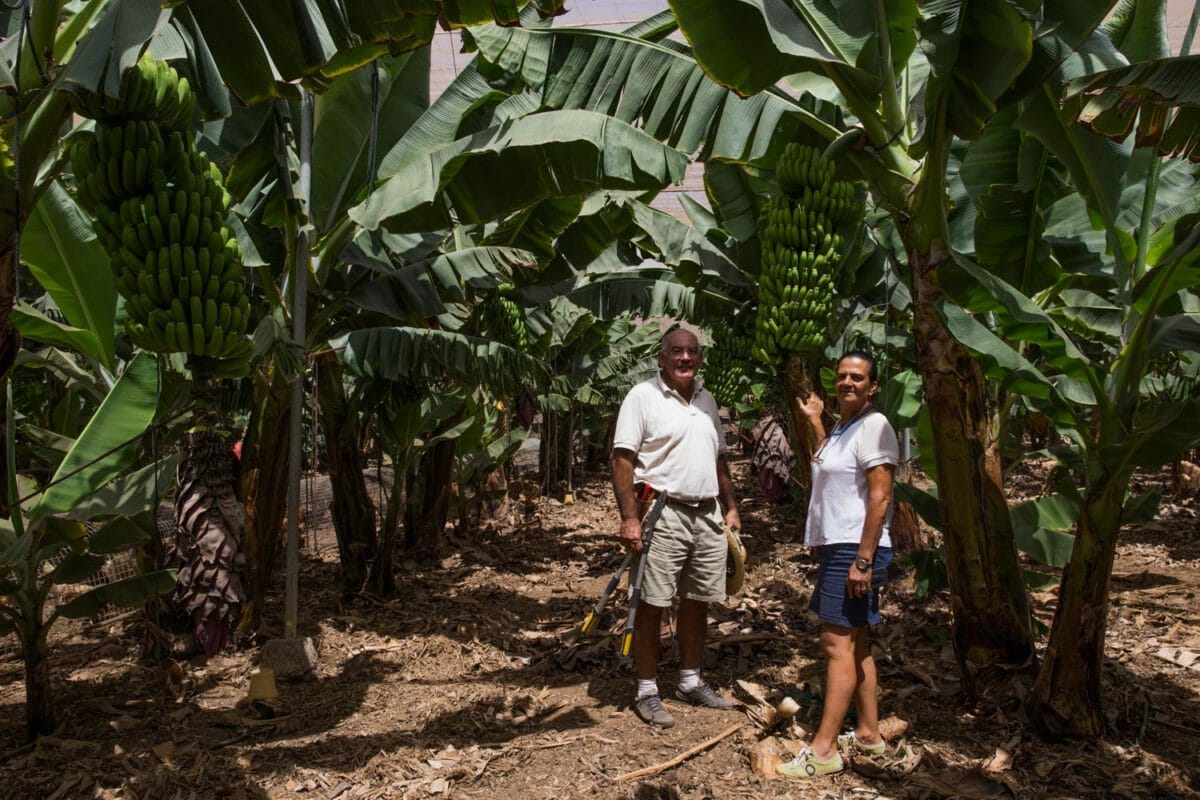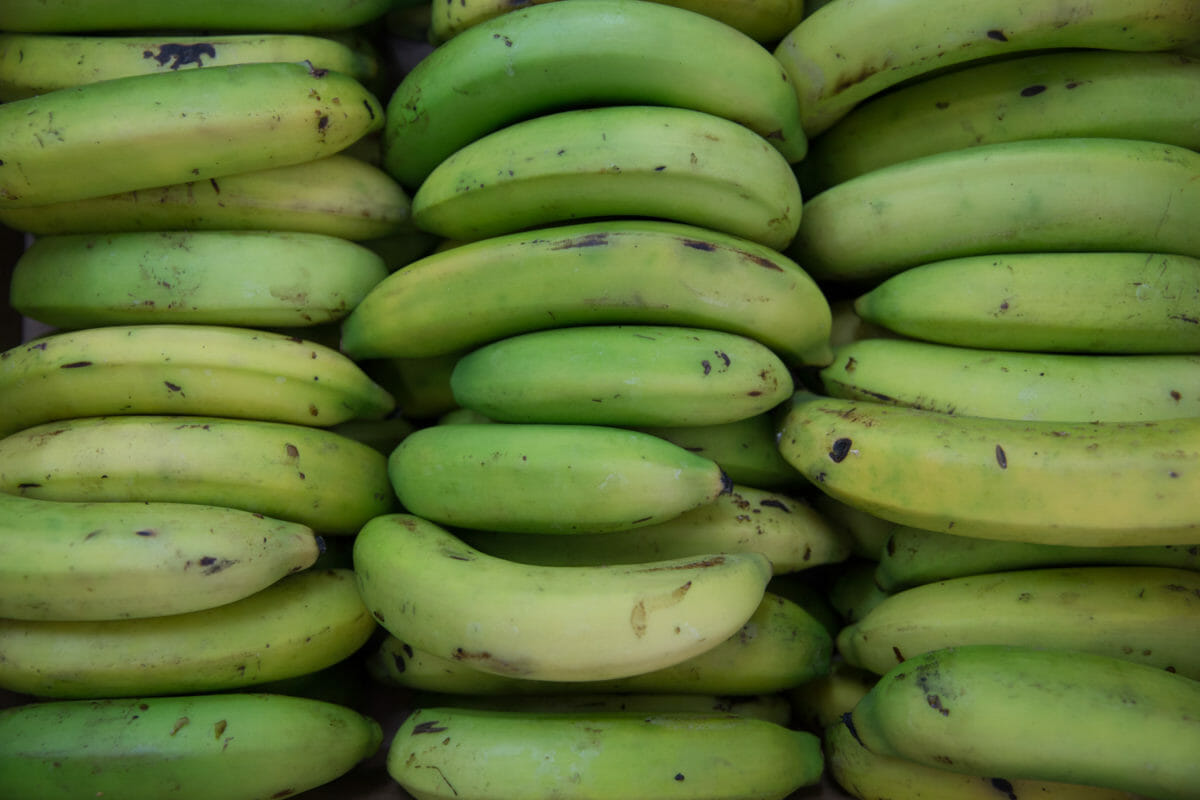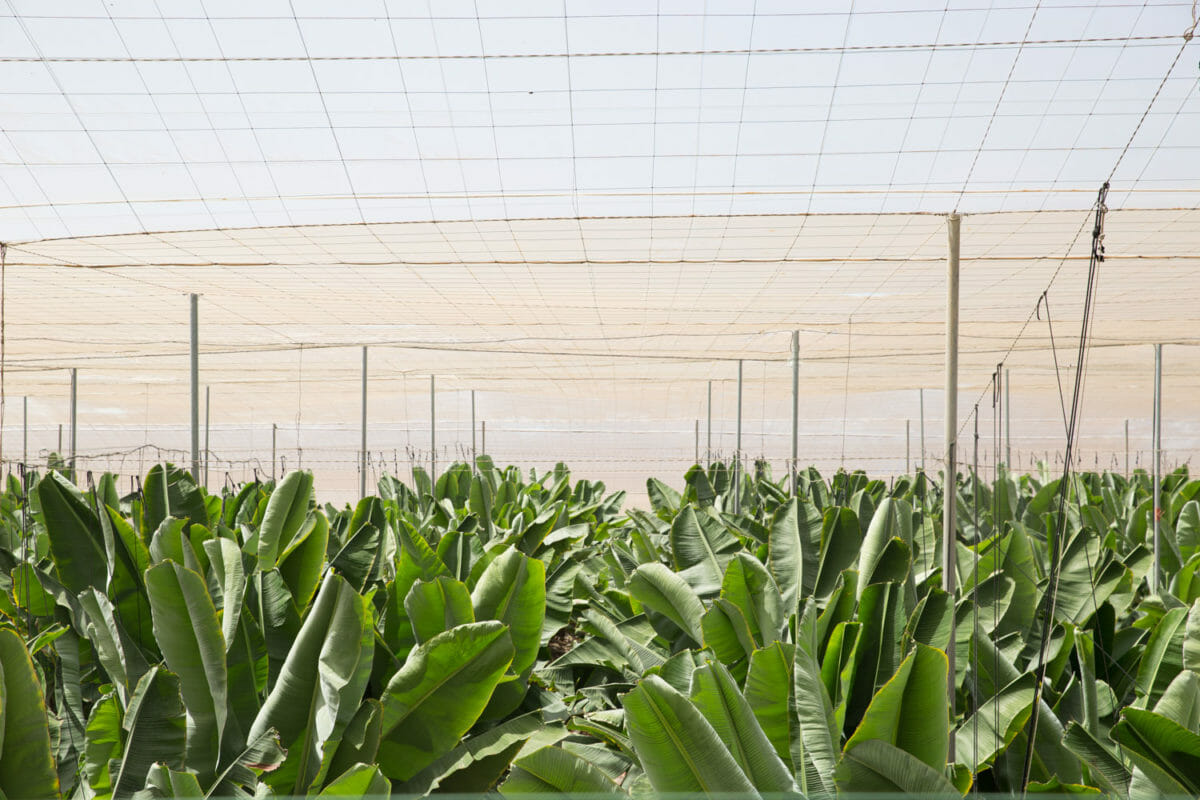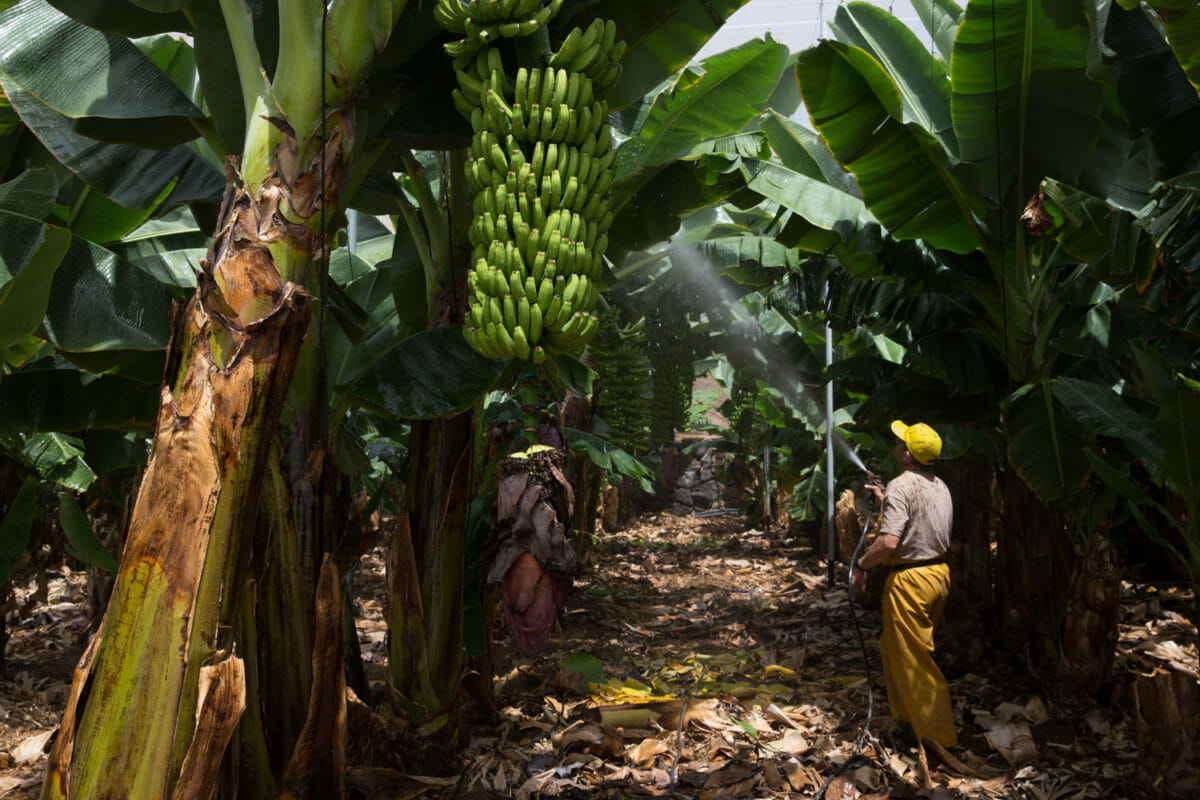This farmer converted her family banana farm in the Canary Islands into an organic operation fifteen years ago and hasn’t looked back.

Located in the Atlantic Ocean, off the Sahara coast, the Canary Islands are a Spanish archipelago said to have the best climate in the world. Mild temperatures year-round, more than 3,000 hours of sunshine annually and little rainfall have made the islands a magnet for European tourists.
Decades ago, the main business of Dulce Acevedo’s family on Tenerife, the biggest of the seven islands, was growing tomatoes. However, soon Canarian bananas, known in Spain as “plátanos,” became their main crop. Culturally, the plátano belongs to the idiosyncrasy of the Canary Islands and is still by far the main fruit farmed in the archipelago. In 2018, almost 400 tons of plátanos were produced.
Both bananas and plátanos come from the Musaceae family, but the Canarian plátanos are sweeter and smaller, easily recognizable for the little brown specks on their skin. Dulce says the difference between the two is “like the American and French oak.” The life cycle of the Canarian plátano is much slower than the Latin American one, she says.
Dulce’s farm currently comprises 150,000 square meters and it has been certified organic since 2006. “We made the decision to become organic because we believe in it. It is a way of life,” she says. “My husband is a doctor and he kept saying that we had to do it. I was afraid because we had to invest a lot of money to get the certification, but we did it.”
The transition to organic wasn’t easy. Dulce says she lost 30 percent of production when she converted to organic, as it meant she could only plant one plant per every six square meters. When she was farming the fruit using conventional agriculture, she could plant them every five square meters. Annual subsidies from the European Union—141 million euros—help make the plátano industry viable, but they are distributed based on the amount of produce farmers yield. So, as Dulce’s production decreased when she made the switch to organic, she also lost subsidies.
According to Dulce, the worst part of converting to organic was dealing with a whitefly infestation when she first stopped using pesticides. She says she was able to alleviate this problem by using high-pressure water to clean her plants. She doesn’t hide that the costs of growing organic produce are higher. On her farm, two people clean the banana plants every day. When she used conventional methods, one person used to be able to clean two big plots of land a day and wouldn’t need to come back for a month, she says.
Dulce and her husband, José Luis García, like to say that their job is to “look after the soil, because if you have a healthy soil, you can grow anything.”
Diversifying what the farm grows has been key to making it profitable. Although bananas are the main crop (they produce around 600,000 kilograms per year), they also grow an array of different fruits, often tropical, such as papayas and mangos. Dulce has been producing dehydrated fruit from the beginning and is now immersed in hosting events such as weddings. They also have plans to build a training room for courses.
“I learned that you need to embrace change to survive,” she says.



Congratulations, I loved your presentation about La Calabacera Farm in Tenerife, Spain. I decided to visit La Calabacera and Dulce Acevedo herself, showed me around her huge amazingly well planned organic farm entrepreneurship. Dulce is starting an education program for U.S. University volunteers study abroad students who need live a term learning, experiencing and helping in an organization like La Calabacera farm. Dulce offers 12 week full board accommodation to 20 undergraduate students who need earn credits volunteering and studying abroad towards graduation.